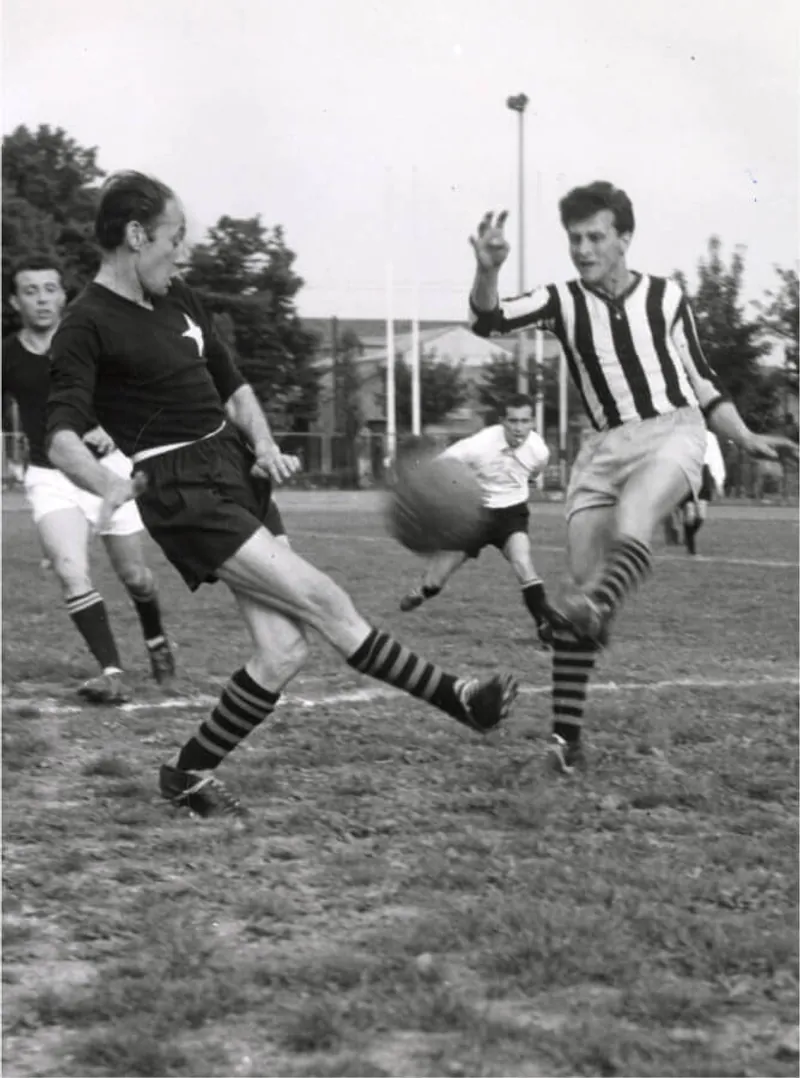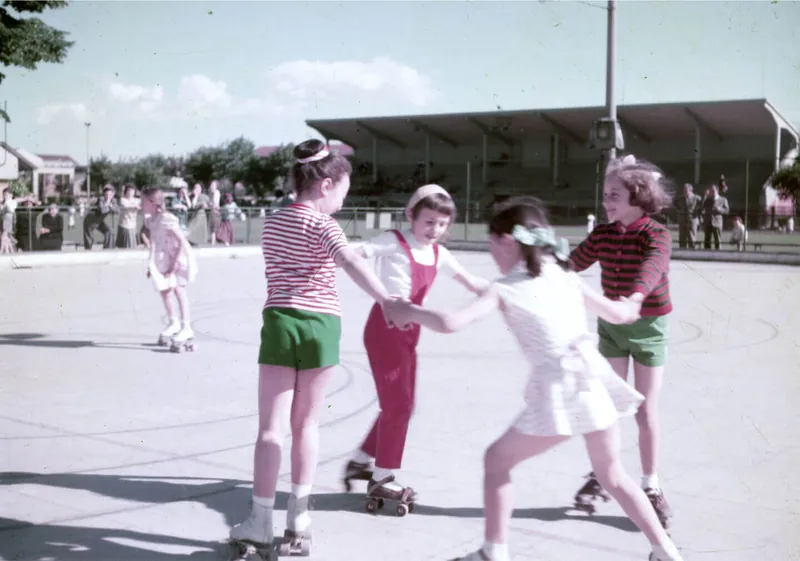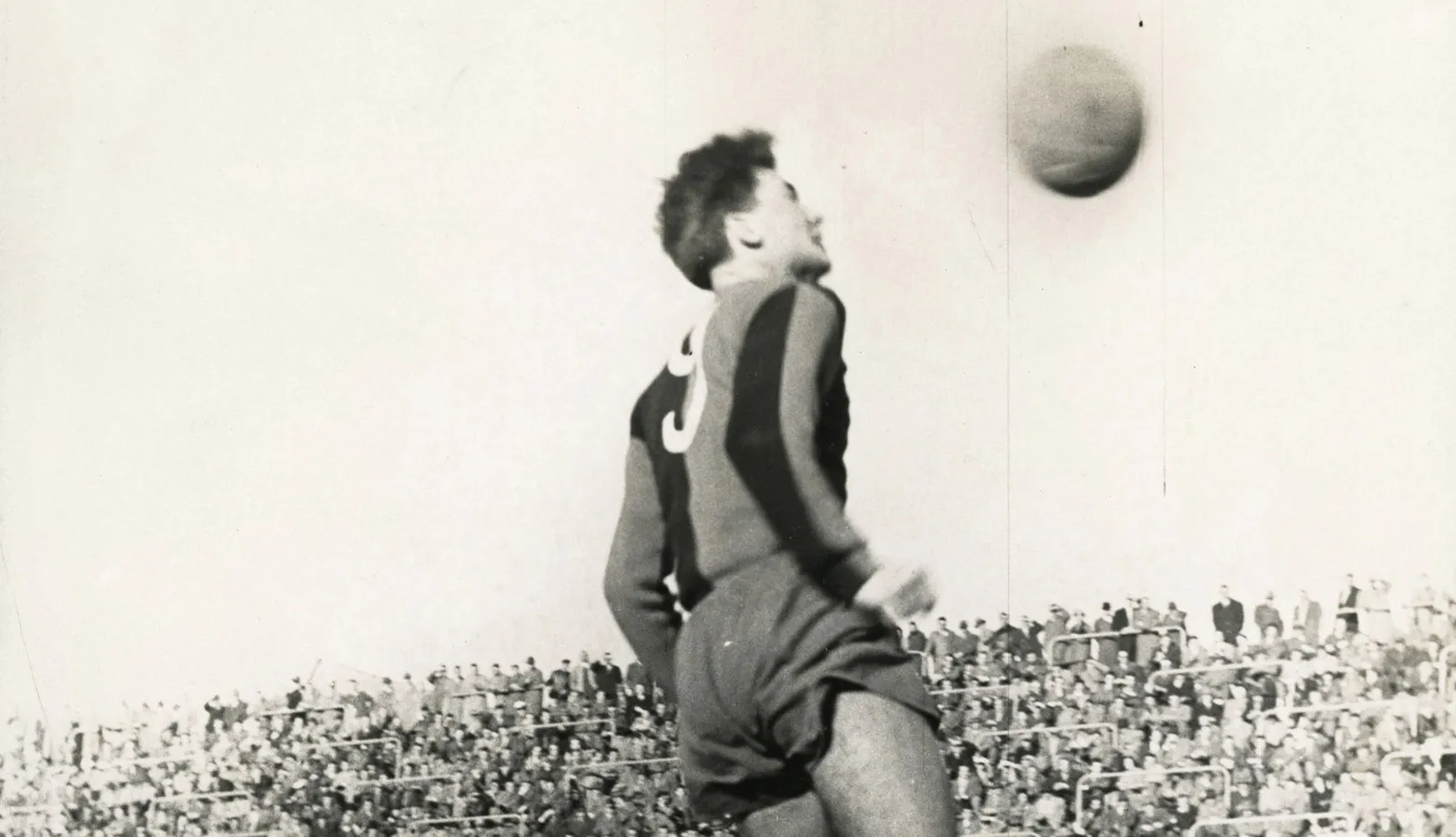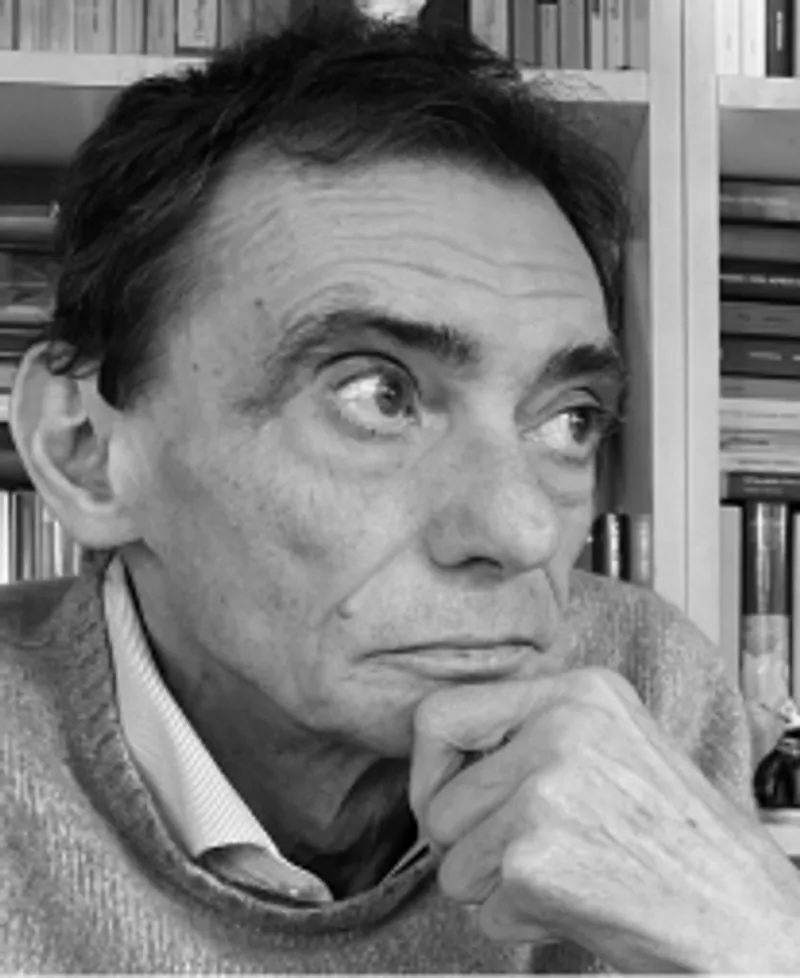Those Sports Fields Next to the Factory
Gyms and race tracks as ways of fostering welfare and community values in the history of Bicocca. Consolini’s Olympic gold medal.
The promotion of sport was a powerful means in the framework of what today we would call corporate welfare, and this was well known by the enlightened entrepreneurs of the early twentieth century.
The old model of the exploitation of the workforce that had been a feature of the rise of the Industrial Revolution was by then completely unsustainable, and it was clear that that same workforce was a capital to be valued and preserved both in spirit and in body. Pirelli, in this respect, had been in the vanguard for several years. In the large spaces that the new Bicocca site—opened in 1909 in the area north-east of Milan—had made available over a twenty-year period, the company had gradually built up a network of services for its employees: first and foremost, the Borgo Pirelli cottages, built pursuant to a series of agreements with the Istituto Autonomo Case Popolari and financed by Pirelli to offer employees subsidised rentals and sales. Then, the kindergarten, the school and the Greco railway station, followed by the theatre and the library. Of course, there were sporting facilities for the 'Pirellians', also due to the historical period, physical fitness was promoted as a source of wellbeing for youth.

The opening of the Pirelli Sport Club, on the company's 50th anniversary and in collaboration with the legendary sports club Pro Patria 1883, was the ultimate recognition of sport as a corporate value. Not a casual focus, however. Rather the result of a solid family culture.

Inaugurated in the 1920s, the Bicocca sports facilities had their second renaissance in the 1950s. In the post-war period, given the shortage of public facilities, these premises adjacent to the plant gave the many young people employed by the company the chance to play sports. Among these young Pirellians was a young Adolfo Consolini, who joined Pirelli in 1948 from the Veronese countryside.

